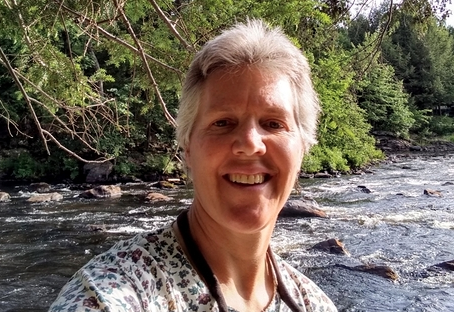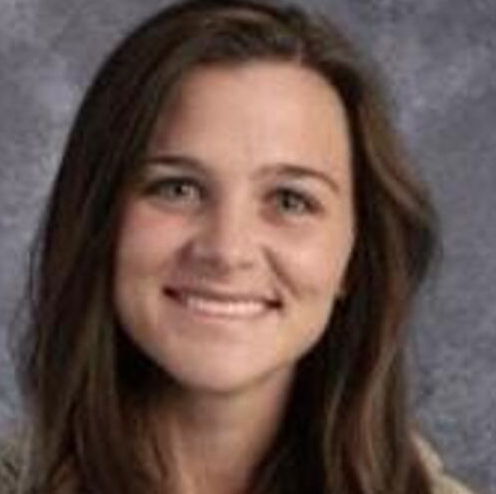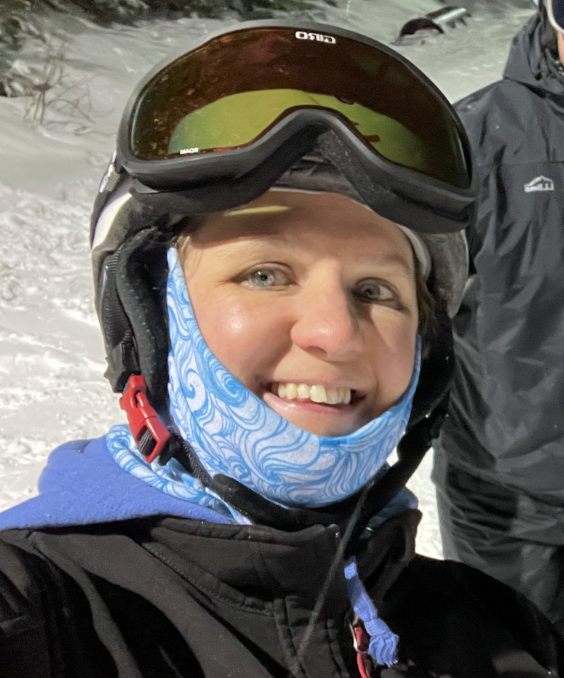School Profile
Dive deep to learn more about our programs, leadership, admissions requirements, grading scale, test scores, and more.

What is VLACS?
The Virtual Learning Academy Charter School (VLACS) is a 501(c)3 nonprofit, state-approved public charter school. We follow the same guidelines established for traditional, brick-and-mortar schools by providing annual data to the New Hampshire Department of Education for the state’s School and District Report Card.
While we follow the same guidelines and provide the same annual data at the state level as traditional brick-and-mortar schools do, our school model is very different — intentionally and by design. This School Profile tells our story. Where applicable, the information we share includes the state’s School and District Report Card data as well as the story behind the numbers based on our unique school model.
What Makes VLACS Different?
At VLACS, we serve students in grades K-12 worldwide in both part-time (PT, supplemental) and full-time (FT) capacities. VLACS is free for New Hampshire residents and is available via tuition to students outside of New Hampshire. All VLACS administrators, instructors, and advisors are NH-certified and deemed highly qualified according to State standards.
Part-time Programs
Students who attend part-time are typically enrolled in a traditional school, homeschooled, or part of an alternative learning program. There are myriad reasons why PT students supplement their local schooling with us at VLACS. They include students with scheduling conflicts at their traditional, brick-and-mortar school who need a class or two that we offer that allows students to take it when it’s convenient for them. For some of our students, a family member or they themselves are facing an illness that requires them to be at home or in the hospital. Other students are learning at home. No matter how students join VLACS, each is served in a personalized way.
Full-time Programs
Full-time students apply for acceptance into the FT program. Once accepted, FT students are assigned an advisor who supports them personally and academically. This advisor meets with the student as well as the student’s parents/caregivers once a month as a check-in to see how they’re doing and if they need any additional support. Advisors also counsel students on what courses to enroll in and what pace students should take based on their specific needs. Students admitted to the full-time program will be pursuing a VLACS diploma that is approved by the New Hampshire Department of Education.
A graduate of VLACS, Pi Gracen Rochford Richardson, explained that VLACS’ flexibility allowed them to spread their coursework throughout the year instead of having to do all of it in a traditional school schedule.
Our Students Choose When, Where, and How They Learn
The flexible learning environment we offer allows students to choose when, where, and how they learn based on their needs, interests, and talents. Some of our students are musicians, artists, actors, professional athletes, and more. The flexibility VLACS offers is perfect for students’ busy schedules, even offering them opportunities to take fewer classes when they need more balance.
VLACS Student Spotlight
Cailean Anderson, a recent graduate, is an actress.
“VLACS allows me to travel all over New Hampshire, perform in different places, make connections with others, and gives me a glimpse of what it might be like to perform professionally one day.”
Cailean needed to find a balance between her rehearsals, performances, and schoolwork. It was the start of her sophomore year, and she was taking five or six classes at once. One of her VLACS advisors reached out and said, “Hey, how are you? Are you doing okay? Do you want to re-work your school year so you have more flexibility in your schedule?” Cailean was grateful and expressed, “I love how my advisor was looking out for me, knowing I needed to find balance while I was juggling my musical, rehearsals, and classwork.”
VLACS Provides the One-on-One Support Students Need to Thrive
In addition to Advisors, VLACS teachers and other supports are in place to help students be successful and prevent them from slipping through the cracks. Jackie Gilbert, a full-time faculty member at VLACS, shared that she and the rest of our team at VLACS support students by “opening up lines of communication” from the start so that students and their guardians/parents feel comfortable reaching out when the need arises. The regular communication helps Jackie and the rest of the VLACS faculty and staff keep a finger on the pulse of each student’s needs as well as to share expectations and requirements of the program so that everyone is on the same page.
Additional student supports include but are not limited to welcome calls for every class (even for experienced VLACS students), monthly calls with student and guardian/parent, discussion-based assessments, progress reports, and more.
VLACS Faculty Spotlight
According to Pete Galamaga, an adjunct English instructor at VLACS, the welcome call is where the relationship-building with students and their families begins.
“The mission statement for VLACS can be summed up in one word: relationships. From the welcome call to the check-in, to the monthly calls, emails, the just-in-time video and phone calls. There are all kinds of pieces that come together that really make relationship building the priority at VLACS.”
Career Connections
VLACS offers Career Connections sessions in which a professional discusses their career journey. For instance, Chris Zecco works as the Video and Motion Design Manager at a marketing agency in Nashua, NH. Zecco has partnered with VLACS to present during Career Connections. Zecco spoke to students about his company, his industry background, how he got to where he is, and what students can expect going into this field. These sessions help our students get acclimated to the opportunities available without having to jump into anything before they know much about a certain path.
In addition to college-bound aspirations, some of our students venture into our work-based learning opportunities that allow students to fully jump into career exploration in a way that provides them with direct connections and experiences in the industry.
Relationships Set VLACS Apart
At VLACS, we know that when teachers truly get to know their students, and they have the tools and flexibility they need to meet them where they are and help them get where they want to go, amazing things become possible.
Curriculum
Assessments
Students must demonstrate mastery of competencies in addition to earning passing grades. Instructors evaluate progress and provide interventions through the variety of assessments built into a course, as well as through one-on-one contact with the student in other venues. Assessments can be in the form of self-checks, practice lessons, multiple choice questions, writing assignments, peer review, projects, research papers, essays, oral assessments, exams, and discussion-based assessments.
Testing Results
VLACS offers students access to a college preparatory curriculum, honors, advanced placement (AP), dual college / high school credit courses (eStart & SNHU), competency recovery, and special interest courses. VLACS has open enrollment for honors, AP and dual enrollment courses.
| Scores | VLACS |
|---|---|
| 5 | 30% |
| 4 | 22% |
| 3 | 26% |
| VLACS Average | 3.58 |
| State Average | 3.29 |
SAT – NH State Assessment
| VLACS Avg. ’23 | NH Avg ’23 | |
|---|---|---|
| ERW | 576 | 606 |
| Math | 525 | 488 |
| Total | 1053 | 1006 |
Grading Scale – 22-23 Academic Year*
| Grade Value** | ||
|---|---|---|
| A+ | 97-100 | 4.00 |
| A | 93-96 | 4.00 |
| A- | 90-92 | 3.67 |
| B+ | 87-89 | 3.33 |
| B | 83-86 | 3.00 |
| B- | 80-82 | 2.67 |
| C+ | 77-79 | 2.33 |
| C | 73-76 | 2.00 |
| C- | 70-72 | 1.67 |
| D+ | 67-69 | 1.33 |
| D | 63-66 | 1.00 |
| D- | 60-62 | .67 |
| F | 0-59 | 0.00 |
| WInc | WInc | n/a |
*Academic year begins July 1, 2023.
**VLACS does not report rank for part-time or full-time students. VLACS does provide an unweighted GPA based on a 4.0 scale. The GPA is calculated continually throughout the year.
The Growing VLACS Community
VLACS isn’t just a school. It’s a thriving, growing community made up of diverse students, faculty and staff, and leadership, as well as our school and business partners.
How Many Students Attend VLACS?
VLACS currently has over 10,000 full- and part-time students, with over 20,000 course enrollments. Our student population comes from over 280 New Hampshire communities and 4 states. 90% of our full-time students start as part-time.
Over the last few years, you can see our enrollment growth:
Total Number of VLACS Students Per School Year
| School Year | # of Full-time Students | # of Part-time Students | Total # of Students |
|---|---|---|---|
| 2018-19 | 329 | 11,548 | 11,877 |
| 2019-20 | 421 | 11,782 | 12,203 |
| 2020-21 | 551 | 12,137 | 12,688 |
| 2021-22 | 671 | 10,252 | 10,923 |
Where Are VLACS Students Located?
The majority of VLACS students reside in New Hampshire. For tuition, students outside of NH can also learn at VLACS in both PT and FT capacities. In 2021, VLACS enrolled 132 students from outside of NH, including 119 students from other states in the US and 13 students in other countries. That number is broken down by location in the table below. As you can see, one student is not even located in a place. They are sailing around the world with their family as they learn with us at VLACS!
Locations of Students Outside of NH
| States other than NH | # of Students |
|---|---|
| Alabama | 2 |
| California | 5 |
| Colorado | 2 |
| Connecticut | 3 |
| Florida | 2 |
| Georgia | 2 |
| Illinois | 7 |
| Indiana | 2 |
| Kentucky | 1 |
| Massachusetts | 21 |
| Maryland | 1 |
| Maine | 8 |
| Michigan | 2 |
| North Carolina | 1 |
| New Jersey | 1 |
| New York | 5 |
| Ohio | 2 |
| Oklahoma | 1 |
| Pennsylvania | 2 |
| Rhode Island | 4 |
| South Carolina | 2 |
| Texas | 4 |
| Utah | 1 |
| Virginia | 4 |
| Vermont | 30 |
| Washington | 2 |
| Wisconsin | 2 |
| Total | 119 |
| Countries other than the U.S. | # of Students |
|---|---|
| Austria | 1 |
| Bahamas | 1 |
| Belgium | 1 |
| Brazil | 1 |
| China | 4 |
| Kenya | 1 |
| South Africa | 1 |
| St. Croix | 1 |
| Sailing | 1 |
| Uganda | 1 |
| Total | 13 |
How Many Students Graduate Each Year at VLACS?
Our graduation data differ from what is reported in the state’s School and District Report Card analysis. According to the state’s data, our graduation rate has been between about 64% and 72% over the last four years.
VLACS’ Graduation Rates (NH state School and District Report Card) (2018-2021)
| Academic Year | Graduation Rate |
|---|---|
| 2017-18 | 71.74% |
| 2018-19 | 63.81% |
| 2019-20 | 72.44% |
| 2020-21 | 66.88% |
| 2021-22 | 66.67% |
The state looks at graduation in a traditional way based on those students who graduate within four years by May/June. In contrast, our students graduate when they meet state requirements, so this means they can graduate in three years or five years, whatever works best for their learning process. Students can also graduate at any time during the year. The data in the table below show the actual number of VLACS graduates per year between July 1 through June 30 each year.
Why are these numbers the way they are? When you look at these numbers, you might think they are low.
At VLACS, our students all have unique stories, and they come to us for different reasons. Some are from military families, while others are elite athletes. Some are hospital or homebound, recovering from illness themselves or supporting the care of a loved one. Others have totally ordinary stories: they wanted a course their school didn’t offer, needed to satisfy credits in ways they couldn’t in their school, were bullied in gym class, and more. Similarly, students leave when they need to. Some only planned to stay at VLACS for a short time, while others stay for their whole schooling experience.
Additionally, it is important to note that we are a competency-based program, meaning students work at their own pace through the competencies they earn to graduate. Some of their competencies are ones that they excel in and might go through really easily while others might be really challenging and take them a bit longer to complete. Each student’s journey at VLACS is a personalized one that meets their learning needs and their lifestyles. Because of that, we have some students who graduate within three years whereas others might take five or six years. In addition, our students can graduate at any time during the year once they complete their competencies, so the traditional May/June graduation doesn’t factor in that VLACS students are graduating throughout the year. We do not penalize students because they take longer than the traditional four years to matriculate. Instead, we meet each student where they are and support them as they work through the program in whatever way is meaningful for them.
Number of Graduates Per Year (Year-Round)
| School Year | Total # of Graduates | |||
|---|---|---|---|---|
| 2018-19 | 94 | |||
| 2019-20 | 122 | |||
| 2020-21 | 137 | |||
| 2021-22 | 146 | |||
| 2022-23 | 160 |
The difference in our numbers isn’t just focused on graduation rates. Take a look at the table below that shows the state’s School and District Report Card analysis on our Postsecondary Enrollment along with our data on the percentage of students per year who attend 4-year and 2-year schools as well as those who venture into the military or career.
| Academic Year | 2019-20 | 2020-21 | 2021-22 | 2022-23 |
|---|---|---|---|---|
| Postsecondary Enrollment Rate | 49.41% | 42.48% | 35.29% | 54% |
| 4-year schools | 36% | 30% | 37% | 38% |
| 2-year schools | 25% | 22% | 16% | 21% |
| Military | N/A | 3% | 2% | 1% |
| Career | 28% | 20% | 19% | 24% |
| Gap Year/Travel | 11% | 25% | 26% | 16% |
At VLACS, we do not solely encourage our students to pursue college. Instead, we provide them with opportunities through our career-based learning experiences. We have developed partnerships with hundreds of professionals and many businesses and organizations in New Hampshire and surrounding states. Our students can meet with professionals to learn about careers and career pathways, complete virtual or in-person job shadows, engage in micro internships, or take one of over 100 career-related course offerings.
This allows students to explore a variety of career options through various entry points or to pursue focused learning about a specific career.
VLACS Student Spotlight
Kai Dennett, a VLACS graduate, produced a gallery show and is a freelance design artist for marketing companies.
Kai Dennett, worked with a former journalist for the Boston Globe and New York Times to help develop their writing skills. They also worked as a writer alongside a Broadway playwright as well as a graphic artist designing tour posters for a rapper. Because of the connections built through these experiences, Dennett proceeded to produce their first gallery show and is now working as a freelance design artist for marketing companies.
How Did VLACS Students Do on State Assessments?
State Assessment – VLACS Data Compared to State Data
| Academic Year | VLACS ELA Proficiency Level | State ELA Proficiency Level | VLACS Math Proficiency Level | State Math Proficiency Level | VLACS Science Proficiency Level | State Science Proficiency Level |
|---|---|---|---|---|---|---|
| 2018 – 2019 | 83% | 58% | 60% | 48% | *N | 41% |
| 2019 – 2020 | 61% | 56% | 28% | 48% | 42% | 39% |
| 2020 – 2021 | COVID | COVID | COVID | COVID | COVID | COVID |
| 2021 – 2022 | 89% | 52% | 58% | 38% | *N | 37% |
Faculty and Staff
All Academy administrators, instructors and advisors are NH certified and deemed as highly qualified according to State standards. The VLACS faculty currently consists of over 160 instructors residing in eight states.
Leadership
Steve Kossakoski, Ph.D Chief Executive Officer
Tony Baldasaro, CAGS Chief Operating Officer
Michael Garron, BSBA Chief Financial Officer
Julie Reece, J.D. Director of Partnerships and Adult Education
Scott Prescott, M.Ed. Director of Instruction
Carey Glines, M.Ed., MS Director of Full-Time Programs
Natalie Berger, CAGS Director of Student and Instructor Support
College Attendances (Full-Time Students)
Adelphi University
Adrian College
American University
Amherst College
Appalachian State University
Arizona State University
Assumption University
Babson College
Bard College
Bay Path University
Bay State College
Becker College
Belmont University
Benedictine College
Bentley University
Berklee College of Music
Brandeis University
Bridgewater State University
Brigham Young University
Bryant University
Catholic University of America
Cedarville University
Central Maine Community College
Champlain College
Chatham University
Colby-Sawyer College
College of the Holy Cross
Colorado College
Colorado School of Mines
Colorado State University
Columbia College
Columbia University
Concordia University
Culinary Institute of America
Curry College
Dartmouth College
Dean College
DePaul University
Drexel University
East Carolina University
Eckerd College
Fitchburg State University
Flagler College
Florida Atlantic University
Fordham University
Franklin Pierce University
George Mason University
George Washington University
Gordon College
Granite State College
Green Mountain College
Harvard University
High Point University
Hofstra University
Houghton College
Indiana University, Bloomington
Ithaca College
James Madison University
Johnson & Wales University
Keene State College
King’s College London
Lander University
Lesley University
Liberty University
Los Angeles College of Music
Loyola Marymount University
Lynn University
Manhattan College
Marlboro College
Marquette University
Marymount Manhattan College
Marywood University
Massachusetts College of Art and Design
Massachusetts College of
Pharmacy & Health Sciences
Merrimack College
Michigan State University
Middlebury College
Moravian College
New England College
New England Institute of Technology
New Hampshire Community College
New Hampshire Institute of Art
Niagara University
North Carolina State University
Northeastern University
Northern Essex Community
Norwich University
Ohio State University
Pace University
Pennsylvania State University
Plymouth State University
Pratt Institute
Providence College
Quinnipiac University
Regent University
Regis College
Rhode Island College
Rivier University
Roger Williams University
Rutgers University
Sacred Heart University
Saint Anselm College
Saint Joseph’s University
Saint Michael’s College
Salem State University
Salve Regina University
Savannah College of Art and Design
Sierra Nevada College
Simmons College
Southern New Hampshire University
Springfield College
Sterling College
Suffolk University
SUNY College at Brockport
Susquehanna University
United States Military Academy, West Point
University of Akron
University of Arizona
University of the Arts
University of California, Santa Cruz
University of Colorado, Boulder
University of Connecticut
University of Delaware
University of Hartford
University of Kentucky
University of Maine, Orono
University of Massachusetts, Amherst
University of Massachusetts, Dartmouth
University of Massachusetts, Lowell
University of Minnesota, Twin Cities
University of Nebraska, Lincoln
University of New England
University of New Hampshire
University of New Haven
University of North Carolina, Chapel Hill
University of Ottowa
University of Rhode Island
University of Utah
University of Vermont
University of Virginia
University of Waterloo
University of Wisconsin, Madison
Utica College
Vanderbilt University
Villanova University
Virginia Military Institute
Washington and Jefferson College
West Virginia University
Wheelock College
School Approval
The Virtual Learning Academy is an approved NH charter school and public school. The New Hampshire State Board of Education approves all charter schools and public schools in the state. New Hampshire charter schools are required to submit annual progress reports to ensure that all applicable academic standards and laws are being met. Additionally, charter schools in New Hampshire must renew their charters every five years. The renewal process includes a rigorous self-study and an on-site evaluation conducted by a team appointed by the New Hampshire Department of Education. At the conclusion of the self-study and evaluation process, representatives from the NH DOE and the charter school meet with the New Hampshire State Board of Education to present their findings. The board may decide to extend the charter for an additional five years or revoke the school’s charter. In 2012, the NH State Board of Education unanimously approved a new five-year charter for the Virtual Learning Academy Charter School. A second five-year charter was approved in December, 2018.
Charter Documents
The following official documents can be downloaded by clicking on each link.
VLACS Charter
VLACS Bylaws
2022-2023 Annual Progress Report
2021-2022 Annual Financial Audit


